Notes Toward a New Language: Into the Desert
BY Cynthia Cruz
Notes Toward a New Language: Into the Desert
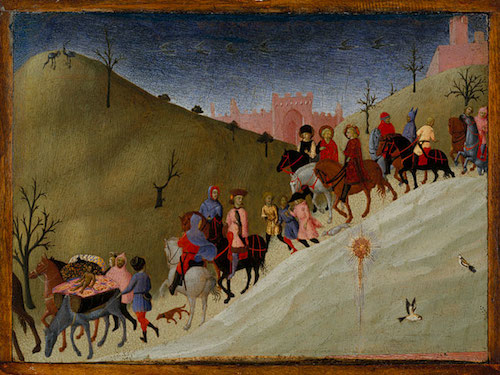
People who know me know I’m obsessed with the Desert Fathers, the first Christians who fled civilization for the desert where they believed they could be alone in silence with God. I’ve written about this subject before: in an essay I wrote for the Los Angeles Review of Books.
But also, somewhat, in poems in my upcoming collection, How the End Begins, a collection that can be seen as a continuation from my previous three in that it chronicles the move from the world of the visible and all of its things toward the world of the invisible.
Of the Desert Fathers, the most famous is Saint Anthony, who Flaubert spent his life slowly writing about, the culmination of which was his novel, The Temptation of Saint Anthony.
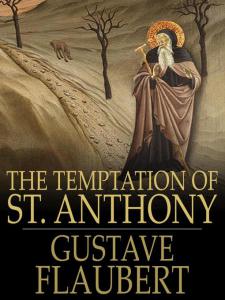
There is also, of course,the more journalistic account written by Saint Athensius of Alexandria who lived from 298-372, during Saint Anthony's lifetime.
There are other Desert Fathers, less known, and also Desert Mothers. They all went into the desert to escape civilization and once in the desert, lived an ascetic life as hermits and monks, focused solely on worshipping God. The Desert Fathers wrote. Their writing is simple, reflecting their asceticism.
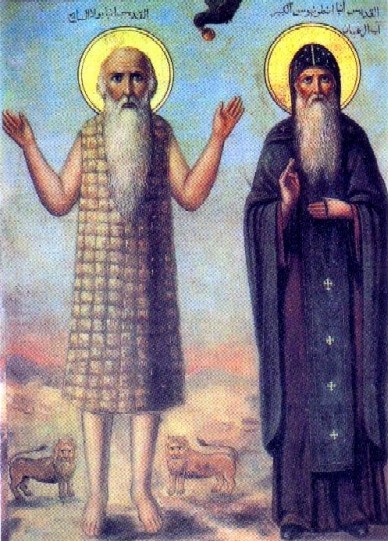
What fascinates me about the Desert Fathers is their refusal to succumb to the worship of things as well as their incredible focus. I wish I were more focused and that I weren't seduced so often by beauty and things. I love the lines of Zbigniew Herbert's poem, Prayer, because it so elegantly describes this malady I am also afflicted with:
Lord,
I give thanks to You for all of this jumble of life, in which
I am drowning since time immemorial helplessly in dead earnest
concentrated on an endless search for trifles.
I was, in fact, supposed to go to the desert, to Egypt, in fact, a few years back. Plans were in place for me to visit Saint Catherine's Monastery in Mount Sinai but I never did visit and now I'm quite certain I never will. But I would not have been the first writer to, like the Desert Fathers, travel into the white hot light of the desert to escape from the world.
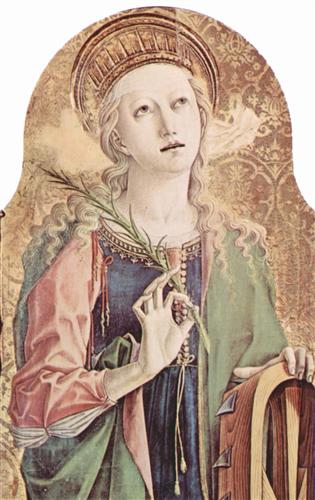
Ingeborg Bachmann visited Egypt, later basing her novel The Book of Franza on this trip (I'll come back to this in a bit), as did Annemarie Schwarzenbach, the Swiss writer who spent her entire life in transit, returning over and over to the desert of one type or another.
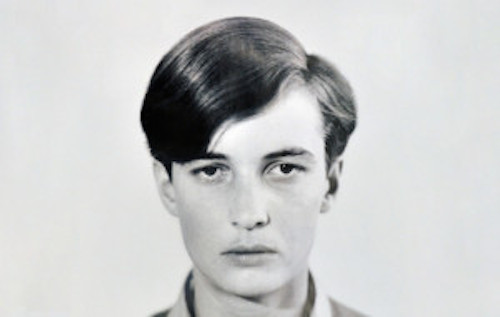
A photographer and journalist and the author of many books, several of which have recently been translated into English and made available by the incredible Seagull Books:
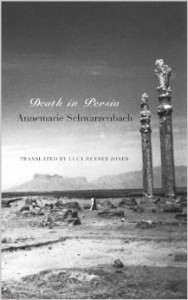
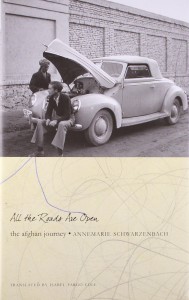
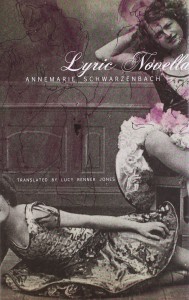
Schwarzenbach was against the Nazis and fascism which alienated her from members of her family and she spent her entire life traveling or fleeing into the desert partly due to this. Brilliant and prolific, she earned her doctorate by the age of 23 and was the author of many many books.
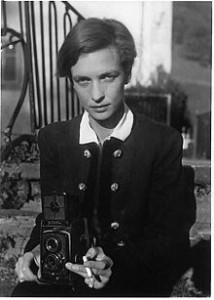
A few years back I saw Veiko Ounpuu's film, The Temptation of St. Tony. A black comedy based on one main character, a successful businessman who begins to examine his own mortality. The first half hour of the film is amazing and certain images, scenes and even lines from this part of the film are featured in my forthcoming book.
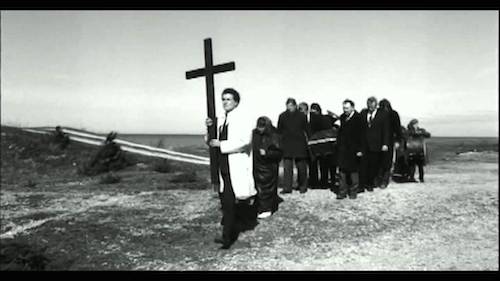
Another film I saw more recently is the film Ida, by the Polish filmmaker Paweł Pawlikowski.
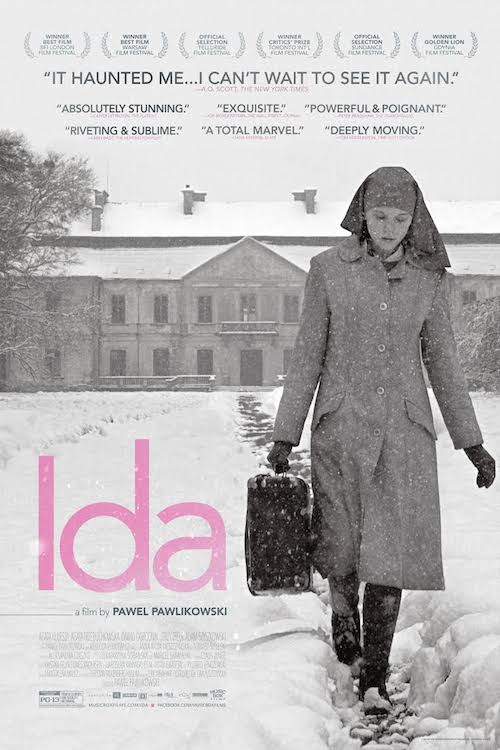
I have seen the film three times and intend to see it again very soon. The film is based on a young girl living in a convent who has spent her entire life inside the concept, having been left at the convent's door when she was a baby. She is told by her superior that before she can take her vows, she must first go out into the world (the opposite of Saint Anthony and the descent into the desert!). She is told, too, that she has one surviving member of her family, an Aunt, and that she is to go out into the world to visit her.
Ida, whose name has been Anna her entire life, learns from her aunt that her name is not Anna it is Ida Lebenstein and that her family was murdered. While she is not impressed with the world, returning to the convent after her visit, she "tries on the world" when she goes back out to the world after her aunt kills herself and she must attend the funeral. This time, Ida drinks, wears her aunts clothing ("becoming" her aunt), and finally having sex with a musician she'd met during her first foray into the world. In the end, though, she returns back to the convent, her desert, where, presumably, she spends the rest of her life.
The Austrian writer Ingeborg Bachmann traveled to Egypt with the intention of writing a book about Europe and fascism but, instead, while in Egypt, was inspired to write The Book of Franza, a novel in which Franza, the main character and also an Austrian, escapes the fascism of her country and of Europe and of her domineering husband, a psychiatrist. While in a sanitarium, she sends a cryptic telegram to her brother who, though he can't de-code the message, knows what she is attempting to convey to him. The two travel to Egypt where, at first she finds freedom from the fascism inherent in her culture and its language but dies, anyway, in the end.
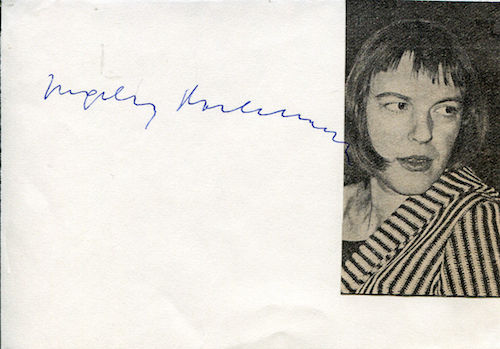
Ingeborg Bachmann who, after winning awards and accolades, essentially quit writing poetry when she found she could not escape the fascism inside of its language. (She did continue writing poetry, but did so privately). Instead, she turned to fiction: short stories and novels as well as radio plays, libretti, and essays. The Book of Franza was the first novel in a triptych she called, Todesarten or "ways to die." She never completed the cycle--she died in a fire at the age of 47 in Rome.
She was close with Paul Celan and Nelly Sachs, both, of course, survivors of the Shoah and Bachmann spent her entire life a wanderer, moving from city to city.
Here is the text of the poem in English:
Exile
I am a dead man who wanders
registered nowhere
unknown in the prefect’s realm
unaccounted for in the golden cities
and the greeting landlong since given up
and provided with nothingOnly with wind with time and with sound
I who cannot live among humans
I with the German language
this cloud around me
which I keep as a house
press through all languages.O how it grows dark
those muted those rain tones
only a few fall
Into brighter zones it will lift the idea man up
Bachmann's work in The Book of Franza, fragments, enacting the fragmentation occurring to Franza: she is broken: she stutters, stammers, is made voiceless. During her travel in Egypt, Franza is made mute--her own silence matching the vast silence of the desert. This new language, this fragment, this stammer, is Bachmann's new language. It refuses to use the voice of authority, of power. This doesn't make the work weak. On the contrary, the words are like stones laid out for the reader to walk upon. Here is a small excerpt from The Book of Franza:
Dear Martin, I must write to you. Dear Martin, I don't know where to begin or what I should say. My dearest Martin, it’s so terrible, and yet I fear there is only you, which is why I’m writing to you. Dear Martin, I’m so full of doubt, I must write to you…That was all. Different dates, all of them from the last two years, the pages yellowed from the past, in part dirty, then a folded page: Dear Martin, yesterday in the cafe as I sat there with those little packages, suddenly I could say nothing (20).
Throughout the novel Bachmann also uses repetition, creating a kind of stutter throughout. This enactment of the character's hesitation, her fear (of speaking), is expressed through the form, of course, in Bachmann's language.
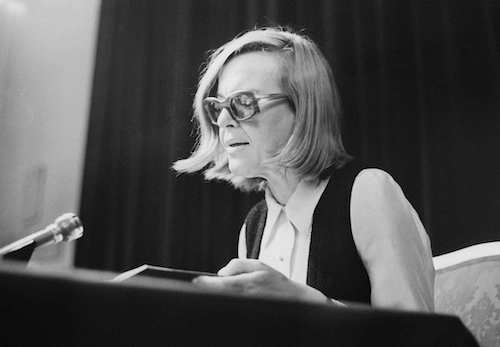
One can say, too, that writing, itself, is a form of descending into the desert and I certainly see it this way. When I write, I leave the place I am in, the world drops away. And I enter another, parallel, world, the world I am making, my own small desert. And what is lovely about this is that I can bring this desert with me anywhere, all I need is my mind, For Where the Mind is, There is the Treasure.
Cynthia Cruz is a poet, novelist, and nonfiction writer. She is the author of the poetry collections...
Read Full Biography

